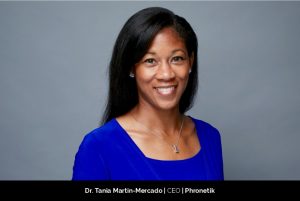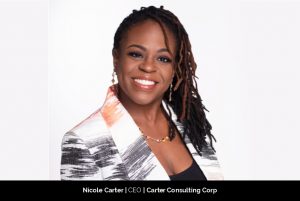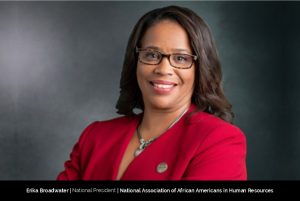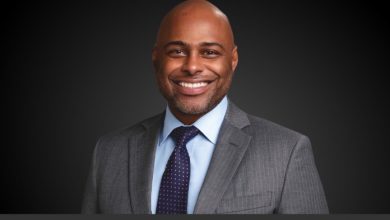Serge-Alain Wandji: Adding Values in Lives by Improving Healthcare System in Developing Countries
Top 10 Black Executives Redefining Business in 2023
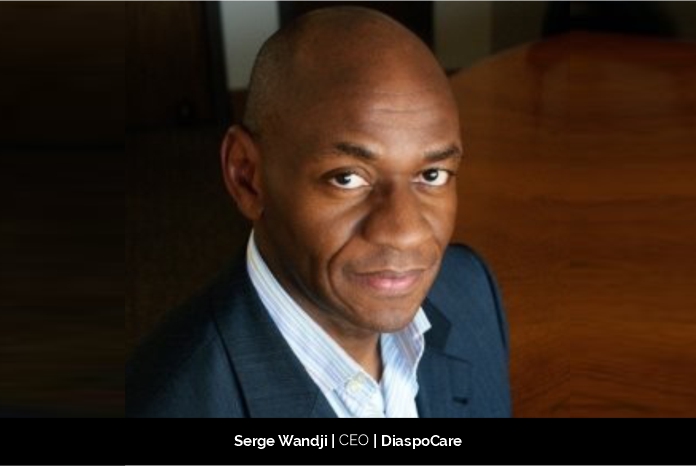
Access to affordable quality healthcare is
one of the major challenges of developing countries. The World Health
Organization estimates that over 100 million people mostly in Low- and
Middle-Income Countries fall into extreme poverty every year because they can’t
afford healthcare and have to borrow money or sell a productive asset such as
the farm to pay for medical bills.
Serge-Alain Wandji, CEO and Co-founder at DiaspoCare,
visions to curb healthcare challenges especially premature deaths in African
countries. He is also a social entrepreneur endeavoring to ensure that everyone
gets appropriate healthcare services despite their financial status. He
opines, “My inspiration to start DiaspoCare came from realizing how
easy it is to die prematurely in Africa because of poor access to health care.
Purchasing one monthly course of diabetes medicines can easily cost a 7-days
wage. In the USA, my annual healthcare spending is close to$15,000, but for a
Sub-Saharan African, it is less than $100. We as diapora members have the moral
obligation to help our families back home. That’s what inspired me to start
DiaspoCare.”
Challenges that Make You Strong
Serge-Alain says, “I am of the
strong conviction that everything we do prepares us for a grand challenge,
whether or not we realize it.” As per Serge-Alain, he was born in Cameroon
in a family of nine very competitive siblings and demanding parents. He
explains that his parents loved him and his siblings to death but had very
strong expectations for them. In his family, they had no excuse for not being
successful.
At the age of 18, Serge-Alain left Cameroon
to study in Canada. He asserts, “Being an immigrant is not an easy journey
especially when the culture gap is so wide. That experience toughened me up and
showed me how to adapt quickly.
Secondly, I became a scientist. This
meant there was no such thing as instant gratification; most of the time what
scientists do doesn’t work anyway, and a lot of time is spent troubleshooting.
That taught me resiliency and most importantly that I can tackle almost any
challenge, given enough time.”
Serge-Alain gained a perspective by going
through those challenges and roadblocks that made him launch DiaspoCare with a
bold vision of healthcare inclusion for millions of people in Africa. For him,
the biggest lesson learned has been to leverage others for such an ambitious
goal.
Painstaking Efforts to Save Lives
In Serge-Alain’s opinion, two major
challenges haunt African diaspora communities who want to ensure their loved
ones in their home country don’t die prematurely and don’t face
healthcare-related financial catastrophe. The first one is the diversion of
healthcare funds by the recipients. He explains, “In fact, my mother
would divert her health care remittances to address other family needs and I
suspect yours would do the same thing.” DiaspoCare enables Serge-Alain
to receive a notification on his mobile phone whenever his mother needs a
prescription and pay her pharmacist directly to have the medicines delivered to
her.
The second challenge is that up to 30% of
medicines sold in Africa are counterfeited, and pharmacies are out of stock 40%
to 60% of the time. To address these supply-side challenges, DiaspoCare offers
a business management solution that helps the typical mom-and-pop pharmacies in
Africa manage their inventory, drug expiration, automates their procurement,
and even send automatic refills to patients. Their solution, branded as
Pharmacy-in-a-Box, works even if there is no Internet or electricity for an
extended period of time but only costs a fraction of existing solutions. The
team states, “We also work with drug authentication partners to ensure
that a payment from our diaspora supporters only clears once the medicine
authenticity has been validated.”
Contribution by Providing Value-based
Care.
DiaspoCare’s
vision is to achieve its most ambitious goal of including at least 20 million
people in the healthcare system in Africa in the next ten years. To achieve
this goal requires some truly disruptive business model innovations. “We
started by challenging the misconception that there must be a trade-off between
quality and price,” says the team. The company adds that people
usually expect products deployed to Low Income Countries to perform at 50% and
cost 50% less than in Developed Countries. But this is healthcare, and we can’t
perform half a surgery on somebody and charge half the price. Serge-Alain
asserts, “We believe that it is possible to achieve 100 percent
performance at 20% of the cost. This has been our approach across product
and business model innovation.”
He further adds that DiaspoCare’s
Pharmacy-in-a-Box for instance enables a mom-and-pop pharmacy in Sub-Sahara
Africa to function with the efficiency of a CVS but at a fraction of the cost.
This applies to the organization’s approach to healthcare financing as well.
In 2019, the Nigerian diaspora sent back
home over $23Bn according to the World Bank. Serge-Alain realizes that there is
a tremendous opportunity in transforming the diaspora community into a different
kind of healthcare payer group; one that demands quality at a fraction of the
cost.
He states, these communities hold
tremendous financial power and can insist on health outcomes for the right
price for their loved ones.
The team at DiaspoCare believes “value-based
care is possible for us because we are starting from a clean slate and can
design it from scratch. Furthermore, we believe that digital transformation of
healthcare financing and delivery would have a multiplying effect on the
value/cost ratio making it possible to bring affordable quality healthcare to
hundreds of millions of people in Africa.”
An Extensive Work Experience
Before DiaspoCare,
Serge-Alain was trained as a scientist in neurophysiology and
reproductive endocrinology. Then and there, he conducted some postdoctoral
research at Cornell University and Penn State College of medicine. After that,
he completed his master’s degree in management of technology from the Wharton
School and the School of Engineering and Applied sciences at UPenn.
Serge-Alain was also appointed as Associate
Director of Technology Development at Hershey Medical Center and subsequently
went to work for the Colgate Palmolive Company and Cargill in intellectual
asset management, technology commercialization, partnerships, and innovation
management. He then joined Children’s Hospitals and Clinics of Minnesota as VP
of Strategy, Business Development, and Innovation. Serge-Alain
has co-founded several startups and served on a few boards.
Responsibilities as the CEO and President
of DiaspoCare
At the office, Serge-Alain’s day starts
with updates and meetings with his teams in Kenya, Ghana, and Nigeria, followed
by investor’s presentations and partnership meetings. Then there is a
one-on-one meeting with the leadership team and at least 2 hours of strategic
and thinking time.
Serge-Alain considers, the one word that
can define him is grateful. He very much appreciates his team members and
believes they are amazing leaders. According to him, each one of the
co-founders of DiaspoCare has done amazing things and would be capable of
running the organization.
Personal and professional life
A healthy routine is vital to maintaining a
balance between work and personal life. Serge-Alain works out at
the gym at least 5 hours a week, practices transcendental meditation, and
believes in redemption. He is strongly connected with family and some close
friends. He also enjoys listening to jazz.
“One thing that absolutely keeps us
going is the freedom to create a better future for millions of health care
disenfranchised. This is the case throughout the organization, including with
our Africa-based teams,” says Serge-Alain.
Plans for future.
For the future, DiaspoCare plans to grow in Kenya, Nigeria and Ghana, initially then across Sub-Saharan Africa in the next ten years to reach at least 20 million lives. Serge-Alain Wandji’s personal goal is to inspire, develop and empower the next generation of African healthcare leaders to make the continent a true beacon of hope for healthcare inclusion. His message to aspiring leaders is to “always lead with conviction, always stand for what you believe.”








